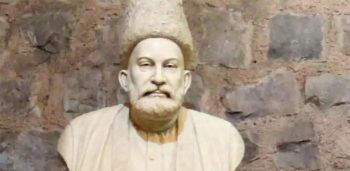Raza Naeem in Naya Daur:
 One thing is common among all the good and great writers: a deep sympathy with man; an ability to view and understand the various aspects of his character and the complex situations of his psychology; and a desire to see life as elegant, pure and pretty, fruit-laden and blooming. Humans do work of various kinds to maintain their personal and social life and for the satisfaction of their desires and instincts; and establish mutual bonds and relationships. They make things, provisions and tools, different laws for their use, ownership and distribution, and principles and codes of conduct.
One thing is common among all the good and great writers: a deep sympathy with man; an ability to view and understand the various aspects of his character and the complex situations of his psychology; and a desire to see life as elegant, pure and pretty, fruit-laden and blooming. Humans do work of various kinds to maintain their personal and social life and for the satisfaction of their desires and instincts; and establish mutual bonds and relationships. They make things, provisions and tools, different laws for their use, ownership and distribution, and principles and codes of conduct.
…Ghalib, who passed away 150 years ago last week on February 15, is among the few greatest artists whose popularity is continuously increasing with the passage of time. It is a sad reality that Ghalib did not achieve the exalted position and status in his life which he deserved. The fame of his verses had spread even in the period of his youth in the Urdu circles of Agra, Delhi, indeed all the cities of northern India; but Ghalib’s poetry, both in terms of its shape and meaning, was different from the prevalent and favoured style of his own time. His verse had a novel meaning, and the beauty of his verse was a novel beauty. To understand, like and enjoy it, there was a need to bring the mind and feeling to a new level and that needed time.
…He said,
‘Do look upon the pomp of life
This commotion is all thanks to us
From this dusty curtain whose name is Man
An apocalypse-like event is glittering’
That is why Ghalib loved this Man; because his heart was permanently agitated with enthusiasm, wish and desire, passion and hope.
More here.
